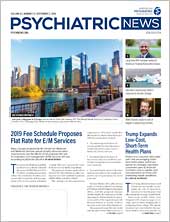The Trump administration issued a final rule last month encouraging the sale of short-term, inexpensive health plans that offer minimum coverage to individuals.
Short-term health plans were designed to fill temporary gaps in coverage, such as when changing jobs or graduating from college. The administration’s new rule will allow the purchase of these short-term policies for 12 months at a time, up from three months, with extensions possible for up to three years. Under prior rules, such policies were not renewable.
These low-cost plans may attract young and healthy working people who do not qualify for government subsidies under the Affordable Care Act (ACA). But health advocacy organizations are concerned the plans’ sparse coverage and lack of required transparency about coverage gaps may result in financial ruin for some consumers when care is needed.
The short-term plans will “expose those younger, healthier individuals to the significant risk that their health plan will fail to cover critically necessary care if they fall ill,” according to a joint statement by some 25 health care advocates representing 100 million consumers with health conditions, including the National Alliance on Mental Illness.
Mental Health, Substance Use Benefits Not Required
Rates vary widely, but monthly premiums for healthy people buying short-term health insurance can be less than one-fifth of a comprehensive plan, according to a Kaiser Family Foundation review of two large online private insurance marketplaces. However, these plans are not subject to ACA requirements; they are not required to cover its “essential health benefits” such as mental health and substance use disorder services, prescription drugs, hospitalization, or emergency services.
Of the 24 short-term plans listed in two online marketplaces examined by Kaiser, none provided maternity care, 38 percent covered treatment for substance abuse, and 57 percent covered mental health services.
In June, the Trump administration issued another final rule making it easier to sell association health plans to small businesses and allowing them to be sold for the first time to people who are self-employed. Like the short-term plans, they are not required to cover essential health benefits.
In addition to the lack of ACA essentials, short-term plans are exempt from other important market rules governing individual plans. Some examples: plans are free to deny coverage or charge higher premiums for older or less healthy applicants, retroactively cancel a consumer’s coverage, deny renewals for enrollees who become ill, and subject enrollees to cost sharing in excess of $20,000 per person, per policy period, the Kaiser report noted.
Frederick Isasi, executive director of Families USA, a health care consumer advocate, called the short-term plans “junk plans.” And “sadly, many people who buy a short-term plan will have the rug pulled out from under them when they need coverage the most: when they have a medical issue and learn they’ve been tricked,” he said.
HHS: Plans Provide ‘More Affordable Option’ for Some
“These plans aren’t for everyone, but they can provide a much more affordable option for millions of the forgotten men and women left out of the current system,” said Health and Human Services (HHS) Secretary Alex Azar.
Comprehensive plans can range from about $300 to $500 per month for the lowest cost, least coverage (“Bronze” category) plans, according to the Kaiser Family Foundation.
While enrollment has been stable in the subsidized exchanges created under the ACA, the administration said enrollment has dropped 20 percent in the non-subsidized market in 2017, while premiums rose 21 percent, according to HHS.
There will no longer be a tax penalty for uninsured individuals—or for individuals who purchase skimpy plans—starting January 1, 2019, due to changes enacted in the Republican tax bill. About 3 million are expected to drop coverage as a result, and the number of uninsured people under age 65 is expected to rise to 32 million next year, according to Congressional Budget Office and Joint Committee on Taxation estimates.
Health care organizations are concerned encouraging short-term plans will cause higher price spikes for those who buy comprehensive coverage. “This rule will siphon younger and healthier individuals out of the individual market risk pool, forcing patients with preexisting health conditions to pay far higher costs for the comprehensive coverage they obtain through the insurance marketplaces.” ■
The final rule on short-term plans can be accessed
here. The report by the Kaiser Family Foundation, titled “Understanding Short-Term Limited Health Insurance,” is available
here.
